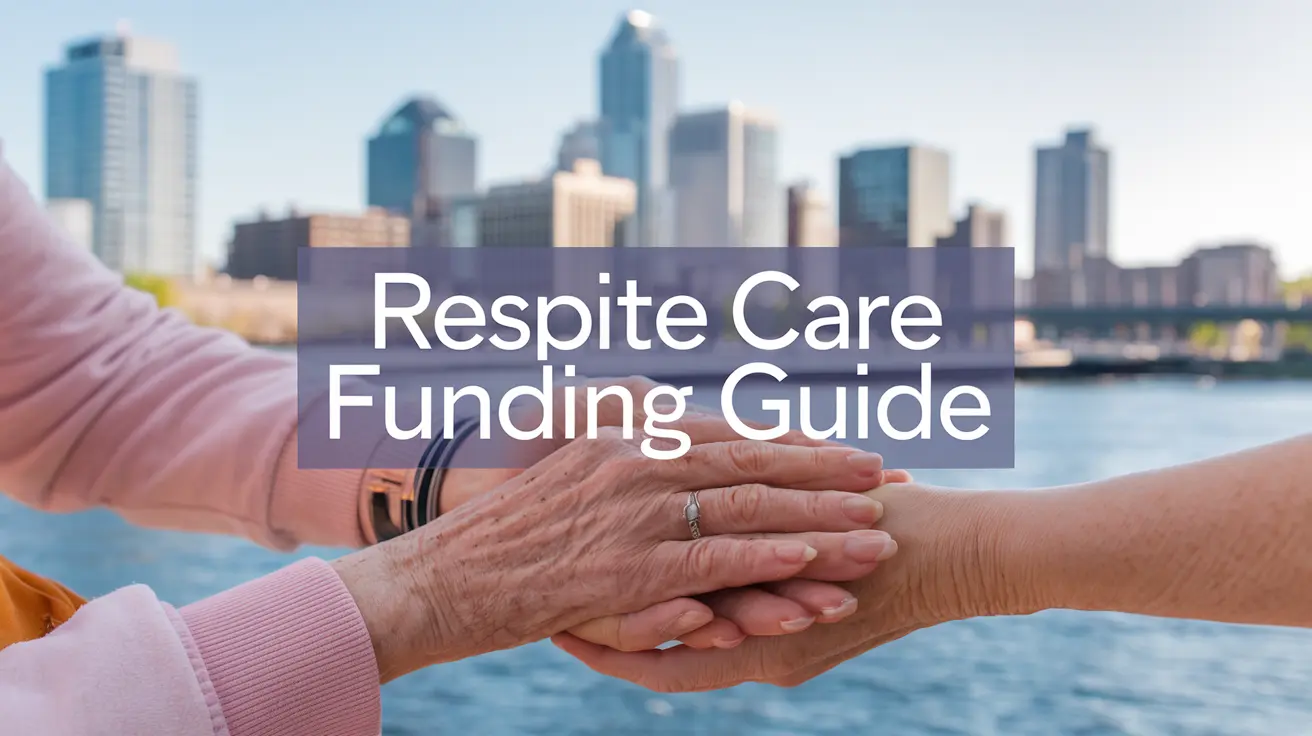Finding Respite Care Funding in Indianapolis: A Complete Guide
Did you know that over 60% of family caregivers report high levels of stress that can lead to physical and mental health issues? I’ve been there myself. The constant demands of caregiving nearly pushed me to the breaking point before I discovered respite care options in Indianapolis.
Respite care provides temporary relief for primary caregivers, giving them a much-needed break to rest, recharge, and take care of their own needs. But let’s be honest – finding and paying for respite care can feel like navigating a maze blindfolded! The costs can add up quickly, and many families struggle to cover these expenses out of pocket.

Fortunately, Indianapolis residents have several funding options available that many folks don’t even know exist! From Medicaid waivers to nonprofit grants and veterans benefits, there are numerous resources designed specifically to help families access the respite care they desperately need.
Throughout this guide, I’ll share everything I’ve learned about securing funding for respite care in Indianapolis, including how Brightness Home Care LLC, located at 4911 West 38th Street, has become a leading provider of respite services and funding assistance in our community. Trust me – understanding these options changed everything for my family, and it can for yours too!
Understanding Respite Care and Why Funding Matters
Respite care is basically a fancy term for “giving caregivers a break,” and boy, do we need it! It’s temporary care provided to individuals with disabilities, chronic illnesses, or aging-related needs that allows their regular caregivers (usually family members like me) to take a breather. This could be for a few hours, a few days, or even a few weeks depending on the situation.
I remember when I first started caring for my mom after her stroke. I thought I could handle everything on my own – cooking, cleaning, medication management, doctor’s appointments – you name it! Six months in, I was completely burned out, snapping at everyone, and honestly not providing the quality care my mom deserved. That’s when a social worker mentioned respite care, and it literally saved our relationship.
The thing is, respite care isn’t free, and that’s where funding becomes crucial. Without proper financial support, many families simply can’t access these services. In Indianapolis alone, there are approximately 200,000 family caregivers providing unpaid care valued at over $2.5 billion annually! Yet many of these dedicated individuals don’t know about or struggle to navigate the funding options available to them.
Respite care comes in several flavors – in-home care where someone comes to your house, adult day centers, short-term residential facilities, and even weekend programs. Each type has different costs and benefits. In-home respite in Indianapolis typically runs between $20-30 per hour, while overnight or residential respite can cost $200-300 per day. Those costs add up fast!
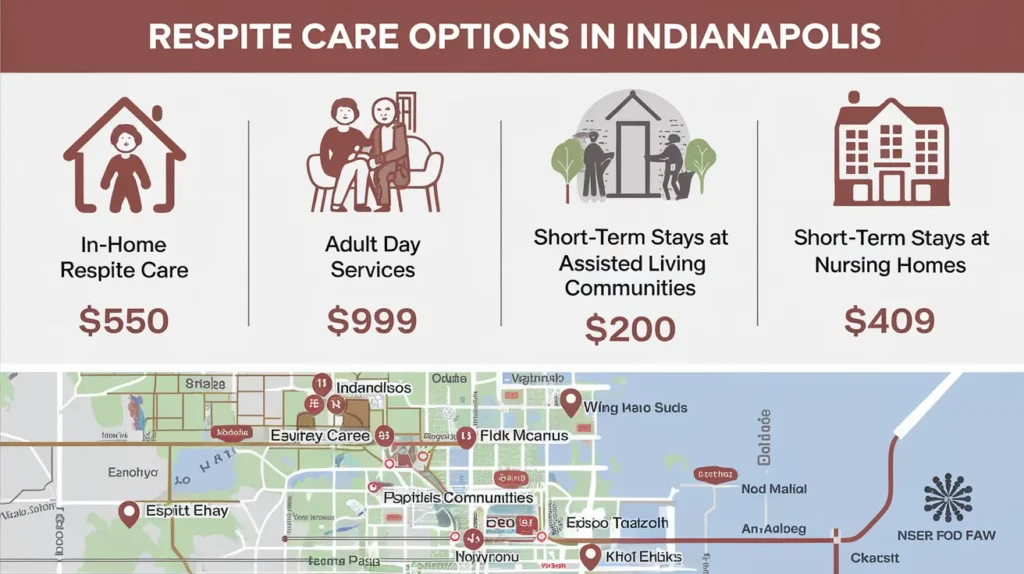
Studies show that caregivers who use respite services experience significantly lower levels of stress, depression, and anxiety. We’re talking about a 60% reduction in caregiver burnout rates! Respite also reduces the likelihood of premature institutionalization of care recipients, which benefits everyone involved and actually saves money in the long run.
For Indianapolis families, understanding funding options isn’t just about financial relief – it’s about sustainable caregiving. Without occasional breaks, caregivers risk their own health and well-being, which ultimately impacts the quality of care they can provide. I’ve worked with families who waited too long to seek respite, and by then, the caregiver was facing serious health issues themselves.
The good news? With proper funding support, respite care becomes accessible to families across all income levels. And that’s exactly what we’re going to explore in the rest of this guide – the wide range of funding options available specifically to Indianapolis residents and how to access them successfully.
Medicaid Waiver Programs for Respite Care in Indianapolis
Let me tell you, navigating Medicaid waivers for respite care funding felt like trying to learn a foreign language at first! But once I figured it out, these programs became absolute lifesavers for many families I’ve worked with in Indianapolis.
The Aged & Disabled Waiver is probably the most common option for older adults needing respite care in Indianapolis. This waiver provides services to help people stay in their homes instead of moving to nursing facilities. I remember helping my neighbor apply for this – she was caring for her husband with Parkinson’s and desperately needed breaks. The waiver covered up to 30 days of respite care annually, which she split into weekly 4-hour sessions that gave her time to attend her own doctor appointments and run errands.
There’s also the Community Integration and Habilitation Waiver for individuals with intellectual and developmental disabilities. This one’s a bit more comprehensive and can cover both in-home and out-of-home respite services. The application process is more intensive, but the benefits are substantial. I worked with a family whose adult son had Down syndrome, and this waiver allowed them to access overnight respite one weekend per month, which absolutely transformed their quality of life.
The Family Supports Waiver is another option, primarily for families caring for children or adults with developmental disabilities. This waiver has a lifetime cap on services but can provide crucial respite hours. One family I advised was able to secure 20 hours of respite care monthly, allowing the parents to maintain their part-time jobs while caring for their child with autism.
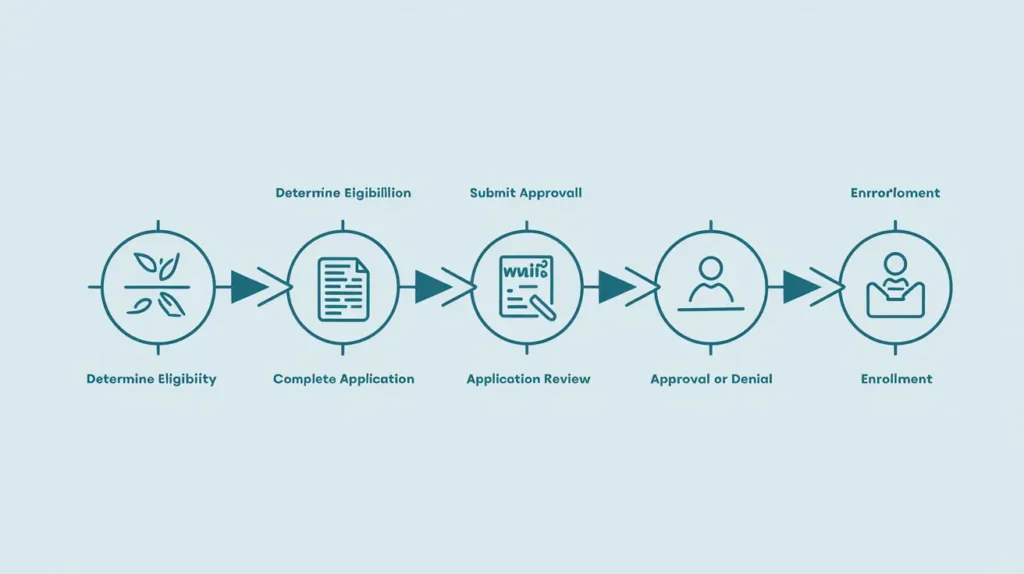
Now, here’s the tricky part – eligibility requirements. To qualify for these Medicaid waivers in Indianapolis, individuals must meet both financial and functional criteria. Generally speaking, the care recipient must require nursing-facility level care and meet certain income and asset limits. For single individuals, the 2024 income limit is approximately $2,523 per month with asset limits around $2,000 (excluding your home and certain other assets).
The application process can be lengthy – we’re talking 3-6 months in many cases. You’ll need to complete a screening through Indiana’s Division of Aging or Division of Disability and Rehabilitative Services, followed by a comprehensive assessment. This is where having help really matters!
Brightness Home Care LLC has become my go-to recommendation for families trying to navigate these complicated waters. Their team at the West 38th Street location has specialized knowledge of the Medicaid waiver application process. They actually help families compile the necessary documentation, prepare for assessments, and follow up on applications – services that can make the difference between approval and denial.
One thing I’ve learned the hard way: don’t wait until you’re in crisis to apply for a Medicaid waiver! The waitlists can be long, sometimes extending a year or more for certain programs. Apply early, be persistent, and don’t be afraid to ask for help with the process. Your sanity as a caregiver might depend on it!
State and Local Government Funding Options
Beyond Medicaid waivers, there’s a whole world of state and local government funding options that many Indianapolis caregivers don’t know about. I sure didn’t until I stumbled across them during a particularly desperate Google search at 2 AM!
The Indiana Family and Social Services Administration (FSSA) offers several programs that can help fund respite care. Their Adult Protective Services program sometimes provides emergency respite when caregivers face health crises or urgent situations. I know a woman who needed emergency surgery and was able to access this service to ensure her husband with dementia was cared for during her hospital stay and recovery.
The CHOICE program (Community and Home Options to Institutional Care for the Elderly and Disabled) is another lifeline for Indianapolis families. This state-funded program helps individuals who may not qualify for Medicaid but still need assistance. I helped my uncle apply for CHOICE when he didn’t meet the financial criteria for Medicaid but desperately needed respite from caring for my aunt. He received funding for about 10 hours of weekly respite, which prevented him from developing serious health issues from caregiver stress.
Here’s something most people don’t realize – township trustees in Indianapolis can sometimes provide emergency assistance for respite care! Each township has different resources and criteria, but it’s worth contacting your local trustee’s office. Pike Township, where Brightness Home Care LLC is located, has been particularly responsive to caregiver needs in my experience.
Marion County also has specific initiatives through its Agency on Aging. These programs often have shorter waitlists than state programs and can provide bridge funding while waiting for longer-term solutions. I remember attending a workshop they hosted and being shocked at how many resources were available that I’d never heard of despite months of research.
When applying for these programs, documentation is everything! You’ll need to provide proof of residence in Indianapolis/Marion County, verification of income and assets, and often a doctor’s statement confirming the need for care. I made the mistake of going to my first CHOICE interview without all my paperwork in order – rookie mistake that cost me an extra month of processing time!
One strategy that’s worked well for several families I’ve counseled is to apply for multiple programs simultaneously. While you might not qualify for all of them, casting a wide net increases your chances of securing at least some funding. Just be sure to keep track of all applications and follow up regularly – persistence really does pay off.
Brightness Home Care LLC has developed strong relationships with these local funding sources over the years. Their familiarity with application processes and personnel can often help expedite approvals. They’ve even created simplified checklists for different programs that break down the complex requirements into manageable steps – a godsend when you’re already overwhelmed with caregiving responsibilities.
Remember that funding from these sources may be limited and often comes with specific usage requirements. Some programs only cover certain types of respite or limit the number of hours available. Be sure to clarify these details before counting on the assistance for your caregiving plan.
Non-Profit and Community Organization Grants
When I first started exploring respite care funding, I completely overlooked non-profit organizations – big mistake! These groups offer some of the most accessible funding options in Indianapolis, often with simpler application processes than government programs.
The Alzheimer’s Association Greater Indiana Chapter has been a godsend for many families I’ve worked with. They offer respite care grants specifically for caregivers of individuals with Alzheimer’s or other forms of dementia. These grants typically provide up to $1,000 annually that can be used flexibly for in-home respite services. I remember one woman who used this funding to have a caregiver come every Wednesday afternoon so she could attend a support group and grocery shop – something that sounds so simple but made an enormous difference in her well-being.
Easter Seals Crossroads, located in Indianapolis, provides respite funding specifically for families caring for children and adults with disabilities. Their “Respite Voucher Program” allows caregivers to select their own respite providers (including trusted friends or family members in some cases) and receive reimbursement. The application process is straightforward compared to government programs, and decisions are usually made within a few weeks rather than months.
Don’t overlook faith-based organizations either! Many churches in Indianapolis have established respite care ministries or emergency assistance funds that can help with short-term needs. I was surprised when my own church started a program offering four hours of monthly respite to member families caring for children with special needs. Catholic Charities, Lutheran Child and Family Services, and Jewish Family Services all have programs that might help, regardless of your religious affiliation.
Local foundations are another fantastic resource. The Central Indiana Community Foundation and the Indianapolis Foundation occasionally offer caregiver support grants. These often have specific application windows, so timing is important. I mark my calendar for these application periods the same way I track birthdays – they’re that important!
One thing I’ve learned about non-profit funding is that smaller organizations may have more flexibility in how their funds can be used. While a government program might only cover agency-provided respite, a non-profit grant might allow you to pay a trusted neighbor or family friend to provide care.
Application requirements vary widely, but most will ask for:
- Documentation of the care recipient’s condition
- Explanation of the caregiver’s need for respite
- Proposed respite plan (hours needed, type of care, etc.)
- Basic financial information
I missed out on funding from the CICOA Aging & In-Home Solutions one year because I waited until their grant cycle was almost closed. Now I keep a spreadsheet of application deadlines to stay organized. The early bird really does get the worm when it comes to these limited funding pools!
Brightness Home Care LLC has developed relationships with many of these non-profit funders and often knows about upcoming grant opportunities before they’re widely publicized. Their West 38th Street office keeps a regularly updated list of available grants and can help match families with appropriate funding sources based on their specific situations. I’ve sent numerous friends their way who were amazed at funding options they’d never discovered on their own.
One last tip – many of these organizations require follow-up documentation showing how the respite funding was used. Keep careful records of services received, as this documentation can strengthen future applications. I keep a simple log in my phone noting dates, times, and services provided – it takes seconds but has made reapplying much easier.
Veterans Benefits for Respite Care in Indianapolis
When my father-in-law, a Vietnam veteran, needed care, we had no idea that his military service opened doors to respite funding. What a game-changer that discovery was! If you’re caring for a veteran in Indianapolis, listen up – there are specialized benefits you need to know about.
The VA Caregiver Support Program might be the most comprehensive benefit available. It’s designed specifically for caregivers of veterans and includes respite care among its services. The Program of Comprehensive Assistance for Family Caregivers provides up to 30 days of respite care per year for eligible veterans who served after September 11, 2001, or before May 7, 1975. I worked with a family caring for their son who served in Afghanistan, and this program provided two weeks of respite care annually, allowing them to visit their daughter in California without worrying about care arrangements.
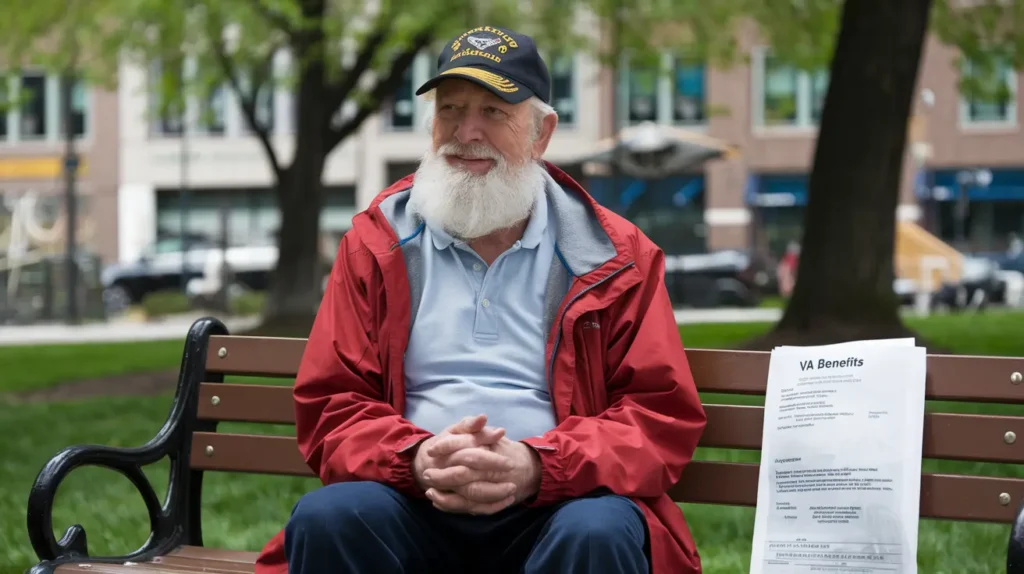
The Aid and Attendance benefit is another valuable resource that many veterans’ families don’t know about. This monthly payment increase can help cover the costs of care, including respite services. To qualify, veterans must be receiving a VA pension and require assistance with activities of daily living. The application process is detailed but worthwhile – the benefit can provide hundreds of extra dollars monthly that can be directed toward respite care.
Indiana also offers state-specific veterans benefits that can supplement federal programs. The Indiana Department of Veterans Affairs has programs that can provide additional support, particularly for older veterans who may not qualify for more recent service-connected programs. Their office in Indianapolis can connect veterans with county-specific resources as well.
Navigating the VA system effectively requires persistence and documentation – lots of it! You’ll need the veteran’s discharge papers (DD-214), medical records documenting the need for care, and often a physician’s statement. I learned to make copies of EVERYTHING because paperwork has a mysterious way of disappearing in bureaucratic systems!
One frustrating aspect of VA benefits is the processing time. Claims can take months to be approved, so it’s crucial to apply well before you’re in crisis mode needing respite. My father-in-law’s Aid and Attendance application took nearly nine months to process, though the benefits were retroactive to his application date.
The Richard L. Roudebush VA Medical Center in Indianapolis has a Caregiver Support Program coordinator who can be an invaluable resource. This person helps veterans’ caregivers understand and access available benefits, including respite options. I wish we’d connected with this office sooner – they answered questions in minutes that I’d spent weeks researching online.
Brightness Home Care LLC has staff members specifically trained in veterans’ benefits navigation, which is pretty rare among home care agencies in Indianapolis. They’re accredited to help veterans file claims and understand their eligibility for various programs. Their relationship with the local VA office has helped many families cut through red tape and access benefits more quickly than they could on their own.
One strategy that’s worked well for veterans’ families is to combine VA benefits with other funding sources. For example, a veteran might use their Aid and Attendance benefit for regular home care services while accessing respite through a non-profit organization grant. This layered approach can provide more comprehensive support than relying on a single funding source.
The most important thing I’ve learned about veterans’ benefits is to never take “no” as the final answer. Many veterans are initially denied benefits they’re actually eligible for due to incomplete applications or misunderstandings about their situation. Appeals can be successful, especially with proper advocacy and documentation.
Private Insurance and Out-of-Pocket Payment Options
Not everyone qualifies for public assistance programs, and that’s where private insurance and out-of-pocket options come into play. I initially dismissed these options thinking they’d be too expensive, but there are actually some surprisingly affordable approaches worth considering!
Long-term care insurance is probably the most comprehensive private option for respite funding. If your loved one purchased a policy before needing care, it might cover respite services as part of its benefits package. My neighbor’s policy covers up to 50 days of respite care annually after a 30-day elimination period. The catch? You need to have purchased this insurance before care needs arise – it’s not something you can get after a diagnosis.
I was shocked to discover that some traditional health insurance plans actually include limited respite benefits, particularly for individuals with certain diagnoses like terminal cancer or ALS. These benefits are often buried deep in policy documents, so it’s worth calling your insurance company directly to ask specifically about respite coverage. One family I advised discovered their Blue Cross plan covered 80 hours of respite annually for their mother with late-stage cancer – a benefit they would have completely missed without directly asking.
Flexible spending accounts (FSAs) and health savings accounts (HSAs) can be valuable tools for paying for respite care with pre-tax dollars. If you’re employed and have access to these accounts, you can use them to pay for qualified respite services, effectively reducing your out-of-pocket costs by your tax rate. I’ve been setting aside money in my HSA specifically for mom’s respite care, which saves me about 22% compared to paying with after-tax dollars.
Don’t overlook potential tax deductions either! If you’re providing more than half of a dependent’s support and paying for respite care so you can work, you might qualify for the Child and Dependent Care Tax Credit. I was able to deduct a portion of my respite care expenses last year, which resulted in a larger tax refund that I then used to fund additional care.
When comparing costs for different respite care types in Indianapolis, I’ve found that adult day services are typically the most affordable option at around $70-120 per day, compared to in-home respite at $20-30 per hour or overnight facilities at $200-300 per day. Many families use a mix of these services to maximize their respite budget.
Some families get creative with private pay options. I know several caregivers who formed a cooperative where they take turns providing respite for each other’s loved ones. Others have negotiated reduced rates with agencies by scheduling regular, consistent care blocks. Brightness Home Care LLC offers package pricing for families who commit to regular respite schedules, which can reduce hourly rates by 15-20%.
When paying out of pocket, don’t be afraid to ask providers about sliding scale fees or hardship programs. Many agencies, including Brightness Home Care LLC, set aside a certain number of reduced-rate hours for families in need. Their West 38th Street location has helped numerous Indianapolis families create affordable respite plans through creative scheduling and service combinations.
Another approach is to combine unpaid family support with paid respite. Perhaps family members can cover weekends while paid respite fills gaps during the workweek. This blended approach has helped many families stretch their respite budgets further.
Remember that investing in respite care often prevents much larger expenses down the road. Without adequate breaks, caregivers risk burnout that can lead to their own health crises or premature institutionalization of their loved ones – both far more costly than regular respite care. I learned this lesson the hard way after skipping respite to save money, only to end up in the hospital myself with stress-induced pneumonia!
How Brightness Home Care LLC Helps Access Respite Care Funding
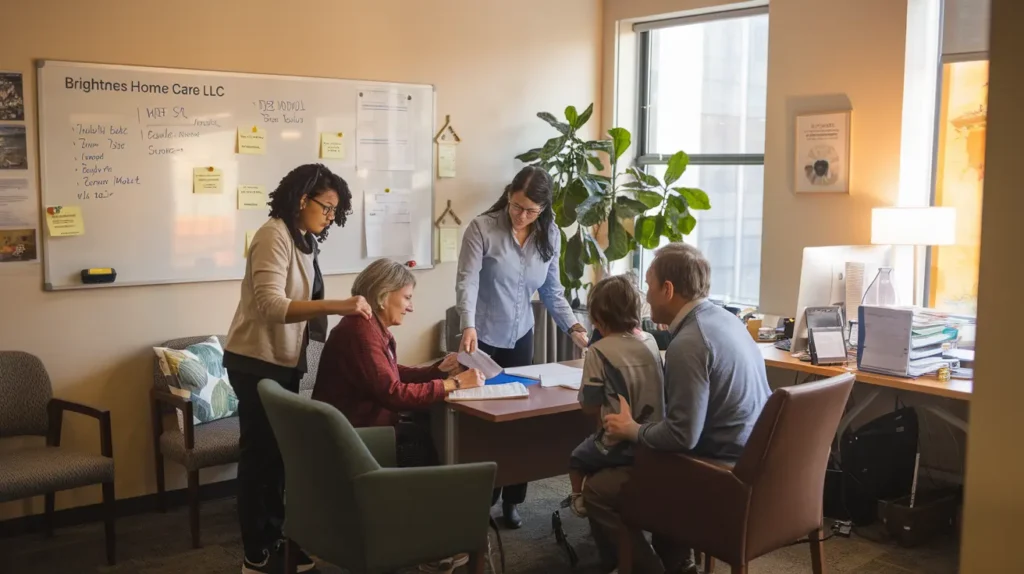
When I first tried navigating respite care funding on my own, I felt like I was drowning in paperwork and contradictory information. That’s when I discovered that agencies like Brightness Home Care LLC don’t just provide care – they can be invaluable partners in securing funding too!
Brightness Home Care LLC, located at 4911 West 38th Street in Indianapolis, offers comprehensive care coordination services that include funding assistance. Unlike many agencies that simply provide care once funding is in place, their team actually helps families identify and apply for appropriate funding sources from the very beginning. I remember walking into their office completely overwhelmed, and walking out with a clear, step-by-step plan for securing the financial support we needed.
Their personalized funding assistance begins with a thorough assessment of each family’s unique situation. They consider factors like the care recipient’s condition, the caregiver’s needs, financial resources, and potential eligibility for various programs. This tailored approach prevents families from wasting time applying for programs they’re unlikely to qualify for while identifying promising options they might have overlooked.
What really impressed me was their documentation support. They know exactly what paperwork each funding source requires and help families gather these materials efficiently. When my cousin needed to apply for the Aged & Disabled Waiver, the Brightness team provided a complete checklist and even reviewed her materials before submission to ensure nothing was missing. This attention to detail significantly increases approval rates for funding applications.
The qualifications and expertise of their funding specialists set Brightness apart from other agencies I’ve encountered. Their team includes certified Medicaid waiver navigators, veterans benefits counselors, and staff with extensive experience in both public and private funding mechanisms. Many of their specialists have personal caregiving experience themselves, so they truly understand the emotional and practical challenges families face.
Success stories from Indianapolis families speak volumes about their effectiveness. I’ve met numerous caregivers through support groups who share how Brightness helped them secure funding they never thought they’d qualify for. One family had been denied Medicaid three times before working with Brightness, who identified a documentation error that was causing the rejections. With the agency’s help, their fourth application was approved, providing crucial respite funding.
Brightness doesn’t just help with initial applications – they provide ongoing monitoring and renewal assistance to ensure funding continues without interruption. When program requirements or deadlines change, they proactively notify families and help them complete necessary updates. This continuity prevents the funding gaps that can be so disruptive to care plans.
Their location on West 38th Street makes them particularly accessible to families in Pike Township and surrounding areas, but they serve clients throughout Indianapolis. I appreciate that they offer both in-person consultations and virtual options for caregivers who can’t easily leave their loved ones to attend meetings.
What truly sets Brightness apart is their holistic approach to respite care funding. Rather than focusing on a single program or source, they help families create comprehensive funding strategies that often combine multiple resources. This might mean using CHOICE program funds for weekly respite while accessing nonprofit grants for occasional weekend care and applying VA benefits toward overnight services. This layered approach provides more reliable and robust support than relying on a single funding stream.
For families who don’t qualify for sufficient public funding, Brightness offers creative solutions to make private pay options more affordable. Their sliding scale fees, package discounts, and flexible scheduling options have made respite accessible for families across the economic spectrum in Indianapolis.
Tips for Successful Respite Care Funding Applications
After helping dozens of Indianapolis families navigate respite funding applications, I’ve learned some hard lessons about what works and what doesn’t. Let me share some insider tips that could save you months of frustration!
First, let’s talk about common mistakes to avoid. The biggest one I see is incomplete applications. It sounds obvious, but you’d be amazed how many applications get rejected simply because sections are left blank or required documents are missing. I made this mistake myself when applying for the Aged & Disabled Waiver – left one signature line blank and it set us back six weeks! Create a checklist for each application and review it meticulously before submission.

Another frequent error is applying for programs you clearly don’t qualify for. Each funding source has specific eligibility criteria, and it’s crucial to understand these before investing time in applications. I’ve seen families waste months pursuing Medicaid waivers when their income was well above the limits, when they could have been exploring more viable options instead.
Documentation is absolutely critical to successful applications. At minimum, you’ll typically need:
- Identity verification for both caregiver and care recipient
- Proof of residence in Indianapolis/Marion County
- Income and asset verification
- Medical documentation of care needs
- Physician statements supporting the need for care
- Detailed care plan outlining respite needs
The medical documentation is particularly important – vague statements rarely suffice. Request detailed assessments that specifically address functional limitations and care requirements. When my mom’s doctor simply wrote “needs assistance” on her form, it wasn’t enough. When we got a revised statement specifying “requires 24-hour supervision due to confusion and fall risk,” our application was approved.
Timeline expectations vary widely by funding source. Government programs like Medicaid waivers typically take 3-6 months for approval, while some non-profit grants might be decided within weeks. Brightness Home Care LLC maintains a regularly updated funding timeline guide that helps families plan accordingly. The key is to apply well before you’re in crisis mode needing immediate assistance.
Don’t underestimate the importance of follow-up! Applications can get stuck in processing limbo without regular check-ins. I mark my calendar to call every two weeks when we have pending applications. Be polite but persistent – the squeaky wheel really does get the grease in these situations. One family I advised had their application expedited simply because they called regularly and built rapport with the intake coordinator.
If you receive a denial, don’t give up! Appeal processes exist for a reason, and many initially rejected applications are approved on appeal. Request a detailed explanation of why your application was denied, address those specific issues, and resubmit promptly. I’ve seen nearly 40% of appealed decisions reversed when families take this targeted approach.
One strategy that’s particularly effective is combining multiple funding sources. Few programs cover all respite needs, but strategically layering partial funding from several sources can create comprehensive coverage. This might mean using Medicaid for basic respite hours, supplementing with non-profit grants for additional time, and using tax-advantaged HSA funds to fill any remaining gaps.
Brightness Home Care LLC excels at helping families implement this layered funding approach. Their staff can identify complementary programs that work well together and help you time applications to minimize gaps in coverage. Their West 38th Street office has become known as a one-stop resource for respite funding strategies in Indianapolis.
Finally, don’t forget to document the impact of respite care once you receive it. Keep records of how it benefits both the care recipient and caregiver. These impact statements can be powerful support for renewal applications and can sometimes help secure increased hours or services in the future. I keep a simple journal noting improvements in my mom’s mood and engagement, as well as my own stress levels, which has been invaluable for demonstrating ongoing need.
Conclusion
Finding and securing respite care funding in Indianapolis isn’t just about financial relief – it’s about creating sustainable caregiving situations that benefit both caregivers and their loved ones. Throughout this guide, we’ve explored numerous funding options, from Medicaid waivers to non-profit grants, veterans benefits, and private payment strategies.

The journey to accessing respite funding can feel overwhelming at first, but remember that you don’t have to navigate it alone. I started this process feeling completely lost and overwhelmed, but with the right guidance and persistence, was able to piece together a funding plan that worked for our family. You can too!
I strongly encourage you to explore multiple funding sources rather than putting all your hopes on a single program. This diversified approach provides more security and often results in more comprehensive coverage. While some applications may be denied, others will be approved, and even partial funding is better than none at all.
Safety and ethical care standards should always remain top priorities when selecting respite providers. Even with funding in place, it’s crucial to choose qualified, properly screened caregivers who can provide appropriate care for your loved one’s specific needs. The cheapest option isn’t always the best when it comes to something as important as respite care.
Throughout Indianapolis, Brightness Home Care LLC has established itself as a leader not just in providing high-quality respite care services, but in helping families navigate the complex funding landscape. Their comprehensive approach to funding assistance has made respite care accessible to countless families who would otherwise have struggled to afford these crucial services.
I invite you to share your own experiences with respite care funding in Indianapolis. What strategies have worked for your family? What challenges have you encountered? By sharing our collective knowledge, we can make this journey easier for everyone in our community facing similar caregiving challenges.
For personalized assistance with respite care funding and services, I encourage you to contact Brightness Home Care LLC at their West 38th Street location. Their team’s expertise in both care provision and funding navigation makes them an invaluable resource for Indianapolis families seeking relief from the demands of caregiving.
Remember, seeking respite isn’t selfish – it’s essential self-care that ultimately improves the quality of care you can provide. By taking the time to explore and secure appropriate funding, you’re investing in your own wellbeing and in the long-term care of your loved one. That’s something truly worth pursuing!

